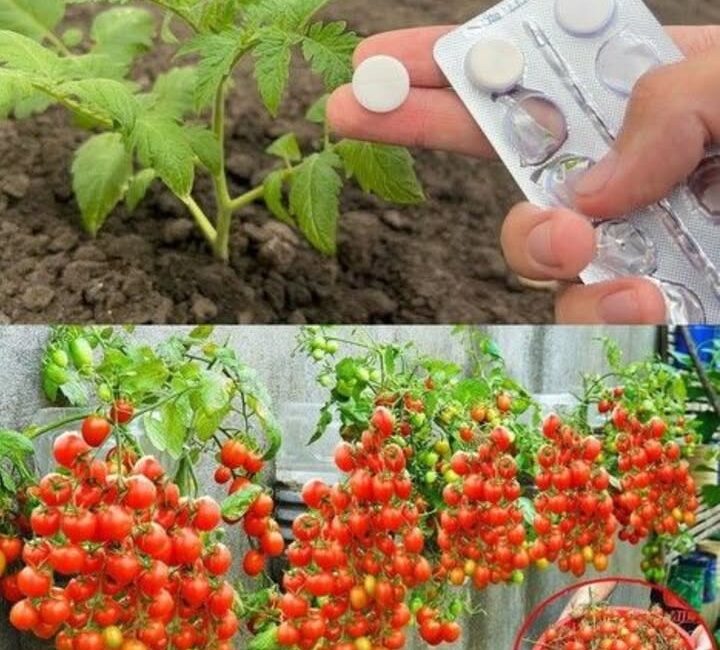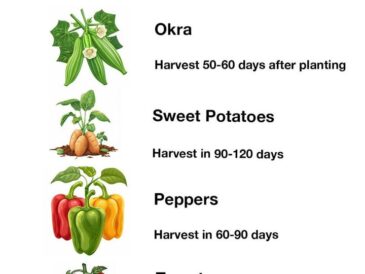Growing tomatoes is one of the most rewarding gardening activities, whether you are a beginner or a seasoned green thumb. However, achieving a bountiful harvest filled with vibrant, juicy, and flavorful tomatoes can sometimes be challenging, especially if you grow them in limited spaces like containers or urban gardens. What if I told you that a simple, everyday aspirin tablet could dramatically improve your tomato plants’ health and boost your yield?
Yes, aspirin—which many of us keep in our medicine cabinets—is packed with a natural compound called acetylsalicylic acid that holds incredible benefits for your tomato plants. In this comprehensive guide, you’ll learn exactly why aspirin works so well in tomato cultivation, how to use it safely and effectively, the science behind it, and expert tips to maximize your harvest.
Why Use Aspirin for Growing Tomatoes?
Aspirin’s key ingredient, acetylsalicylic acid, is a derivative of salicylic acid—a natural plant hormone involved in numerous plant physiological processes, including defense mechanisms and growth regulation. Here are the major reasons why aspirin can be a game-changer for your tomatoes:
Boosts Plant Immunity
Just like humans use aspirin to fight inflammation, plants use salicylic acid to trigger their immune responses. Applying aspirin helps tomato plants activate their natural defense systems against diseases such as fungal infections (e.g., blight, powdery mildew) and bacterial pathogens.
Speeds Up Growth
Aspirin stimulates photosynthesis and enhances cell division, resulting in faster and more vigorous vegetative growth. Your tomato plants develop stronger stems and leaves, better able to support heavy fruit loads.
Enhances Flowering and Fruit Development
With improved hormonal balance due to acetylsalicylic acid, tomato plants tend to produce more flowers, leading to an increase in fruit set. This results in a higher number of tomatoes per plant and often larger, healthier fruits.
Helps Plants Cope with Stress
Whether facing drought, temperature fluctuations, or pest attacks, aspirin-treated plants exhibit greater resilience and maintain their physiological functions better under stress conditions.
How to Use Aspirin for Your Tomato Plants: Step-by-Step Guide
The key to reaping aspirin’s benefits lies in the correct preparation and application. Overusing aspirin can harm plants, so precision is essential.
What You Need
- Aspirin tablets (standard 325 mg)
- A watering can or container capable of holding about 1 gallon (4 liters) of water
- Stirring stick or spoon
- Healthy tomato plants (in-ground or containers)
Preparing the Aspirin Solution
- Take one 325 mg aspirin tablet.
- Dissolve it completely in 4 liters (1 gallon) of lukewarm water.
- Stir well until the aspirin tablet is fully dissolved and the solution is clear.
How Often to Apply
- Use this aspirin solution to water your tomato plants every 2 to 3 weeks.
- This interval allows the plants to benefit from the immune boost without risking toxicity.
Alternative Method: Direct Soil Application
- When planting new tomato seedlings, you can place one aspirin tablet near the roots.
- As it slowly dissolves, it will provide a steady supply of acetylsalicylic acid directly to the root zone.
Important Safety Tips
- Never exceed the recommended dose of one tablet per 4 liters of water.
- Avoid applying the aspirin solution during the hottest parts of the day to prevent leaf burn.
- If you notice any negative effects such as yellowing leaves or stunted growth, stop using aspirin immediately.
Expected Benefits: What Results Will You See?
Using aspirin properly can lead to noticeable improvements in your tomato plants’ overall health and productivity.
Lush, Green Foliage
Stronger immunity means your tomato plants are less prone to common diseases, resulting in lush, vibrant green leaves throughout the growing season.
Robust, Vigorous Growth
Expect sturdy stems and a more expansive plant structure capable of supporting larger clusters of tomatoes.
More Flowers, More Fruit
Click page 2 for more




